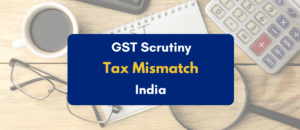Written By – PKC Desk, Edited By – Mona-Hemanadhan, Reviewed By – Sanjana
The Goods and Services Tax (GST) system offers a significant advantage to businesses by allowing them to claim Input Tax Credit (ITC) on most goods and services used in the course of business.
However, this benefit doesn’t come without boundaries. The law specifically blocks ITC on certain categories of goods and services, regardless of their use.
For accountants and tax professionals, knowing exactly what constitutes blocked credit under Section 17(5) of the CGST Act is critical. Misinterpreting these provisions can lead to wrong ITC claims, potential notices, and reversal of credits with interest.
This blog explores the concept of blocked credits, outlines the key scenarios, and offers practical strategies to manage, educate, and protect your clients from compliance pitfalls.
What is Blocked Input Tax Credit?
Input Tax Credit (ITC) allows registered taxpayers to deduct the GST paid on purchases from the GST they owe on sales. However, Section 17(5) of the CGST Act restricts ITC on certain goods or services, even if they are used in the course of business.
These are called “blocked credits” and claiming them—knowingly or unknowingly—can result in legal consequences.
Understanding these exclusions helps ensure accurate GST filings and stronger audit preparedness.
Categories of Blocked Credits Under Section 17(5)
Let’s look at the key categories of blocked ITC with explanations and real-world examples.
A. Motor Vehicles for Transportation of Persons (Capacity ≤13 including driver)
Blocked When:
- Vehicles are used for personal use or transport of people with seating capacity up to 13.
Allowed When:
- Used for further supply (e.g., selling vehicles)
- Used for transportation of passengers (e.g., taxi service)
- Used for training driving skills
Example:
An FMCG company buying a sedan for its CEO’s travel cannot claim ITC. However, a driving school buying the same car can claim ITC.
B. Services Related to Motor Vehicles
This includes:
- Insurance
- Servicing
- Repairs and maintenance
Blocked When:
- Related to vehicles used for personal or non-business purposes
Allowed When:
- If ITC on the motor vehicle is allowed
- Government mandates insurance (e.g., third-party)
C. Food and Beverages, Outdoor Catering, Beauty Treatment, Health Services, Cosmetic Surgery
Blocked When:
- Used for personal consumption or staff welfare
Allowed When:
- Used for making an outward taxable supply of the same category (e.g., caterer buying food ingredients)
Example:
A company providing food to staff during long shifts cannot claim ITC, unless such food services are part of its business offering.
D. Membership of Clubs, Health and Fitness Centres
Blocked Regardless of Use
This includes:
- Gym memberships for employees
- Club memberships for directors
These are always treated as personal benefits, hence ITC is not allowed.
E. Rent-a-Cab, Life Insurance, and Health Insurance
Blocked Unless:
- It’s obligatory under any law (e.g., employee health cover mandated by government or labor laws)
- Used for making taxable outward supplies of similar nature
Strategy Tip:
Review labor law obligations—some companies may claim ITC if they are legally bound to offer these services.
F. Travel Benefits to Employees on Vacation (e.g., Leave or Home Travel Concession)
Blocked:
- These are considered perquisites and not eligible for ITC, unless they’re part of the business’s outward supply.
G. Works Contract Services for Immovable Property
Blocked When:
- For construction of office buildings or warehouses (other than for resale or providing construction services)
Allowed When:
- When the recipient is in the business of supplying works contract services
Important Note:
Even if a company builds its own factory, ITC on the construction cost is not allowed unless capitalized and used for further taxable supply.
H. Goods or Services Used for Personal Consumption
Always Blocked, even if bought in the name of the company.
I. Goods Lost, Stolen, Destroyed, or Given as Free Samples
Blocked Without Exception
For example:
- Loss of stock due to fire
- Free promotional items given to customers
- Samples distributed during product launches
These must be written off in books, and no ITC should be claimed.
How Accountants Can Help Clients Handle Blocked Credits
Here’s how you can add value and protect your clients from penalties or credit reversals:
A. Create an ITC Eligibility Matrix
Maintain a customized matrix for each client’s common purchases. For example:
| Expense Type | ITC Eligibility | Remarks |
| Employee Meals | Blocked | Not allowable unless mandatory |
| Delivery Van (Goods) | Allowed | Eligible if used for business transport |
| Personal Car (CEO) | Blocked | For personal use |
This visual tool avoids repeated questions and helps teams understand compliance.
B. Use Accounting Software Tags
Enable tagging of expenses as:
- Eligible ITC
- Blocked ITC
- Conditional (needs verification)
Some ERP systems and GST software allow such tagging. It ensures accurate GSTR-3B filing and helps in audits.
For transparency and easier reconciliation, maintain a separate ledger for blocked ITC in your accounting system.
This also helps:
- Identify permanent differences during tax audits
- Track inadmissible credits for management reporting
C. Stay Prepared for Audit Scrutiny
GST authorities closely review:
- Unusual ITC claims
- High ratios of input to output
- Credit reversals due to blocked goods/services
Best Practice: Keep documentation (e.g., purpose, usage) for each major purchase that could potentially be flagged.
Consequences of Claiming Blocked ITC
If blocked credit is claimed mistakenly, the taxpayer must:
- Reverse the ITC immediately
- Pay interest @18% from the date of claim
- Face penalties if found during audit or scrutiny
Also, once blocked credit is claimed and utilized, it may impact future refund claims, GSTR-9 annual return accuracy, and ITC ledgers.
Practical Steps to Stay Compliant
| Step | Action Item |
| Review Purchase Ledger | Identify commonly blocked items |
| Monthly ITC Review | Reconcile eligible vs. blocked ITC |
| Train Internal Staff | Focus on expense classification |
| Update Documentation Practices | Retain purpose/use case proof |
| Engage in Preventive Audit | Conduct internal GST health checks |
In Summary:
Claiming the wrong ITC doesn’t just result in financial penalties—it can also damage your client’s credibility with tax authorities. So, one have to be very cautious on whether the Input Tax Credit are claimed only on the eligible Purchases.

 Expert verified
Expert verified 

